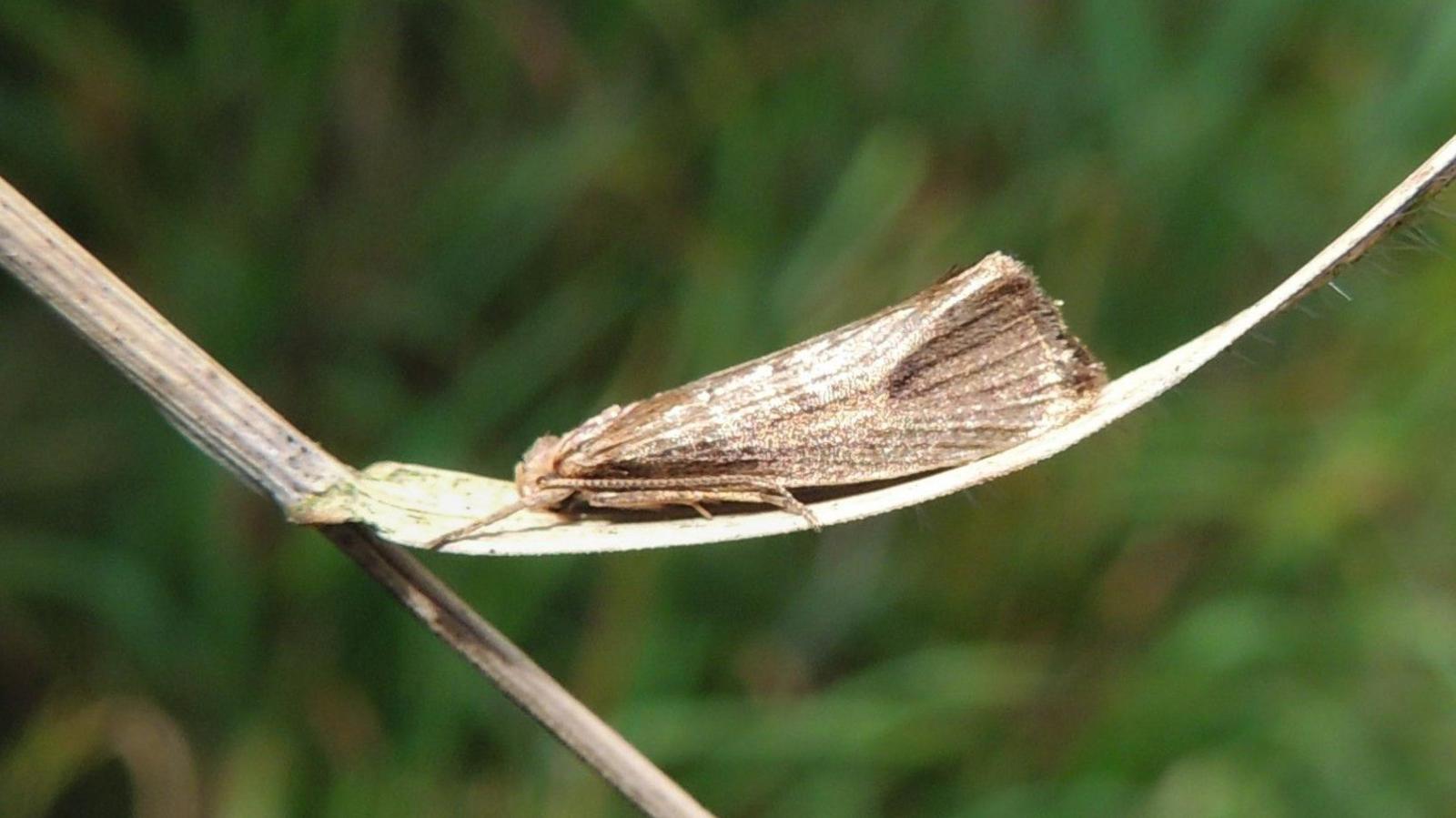Island nesting site built for rare seabirds
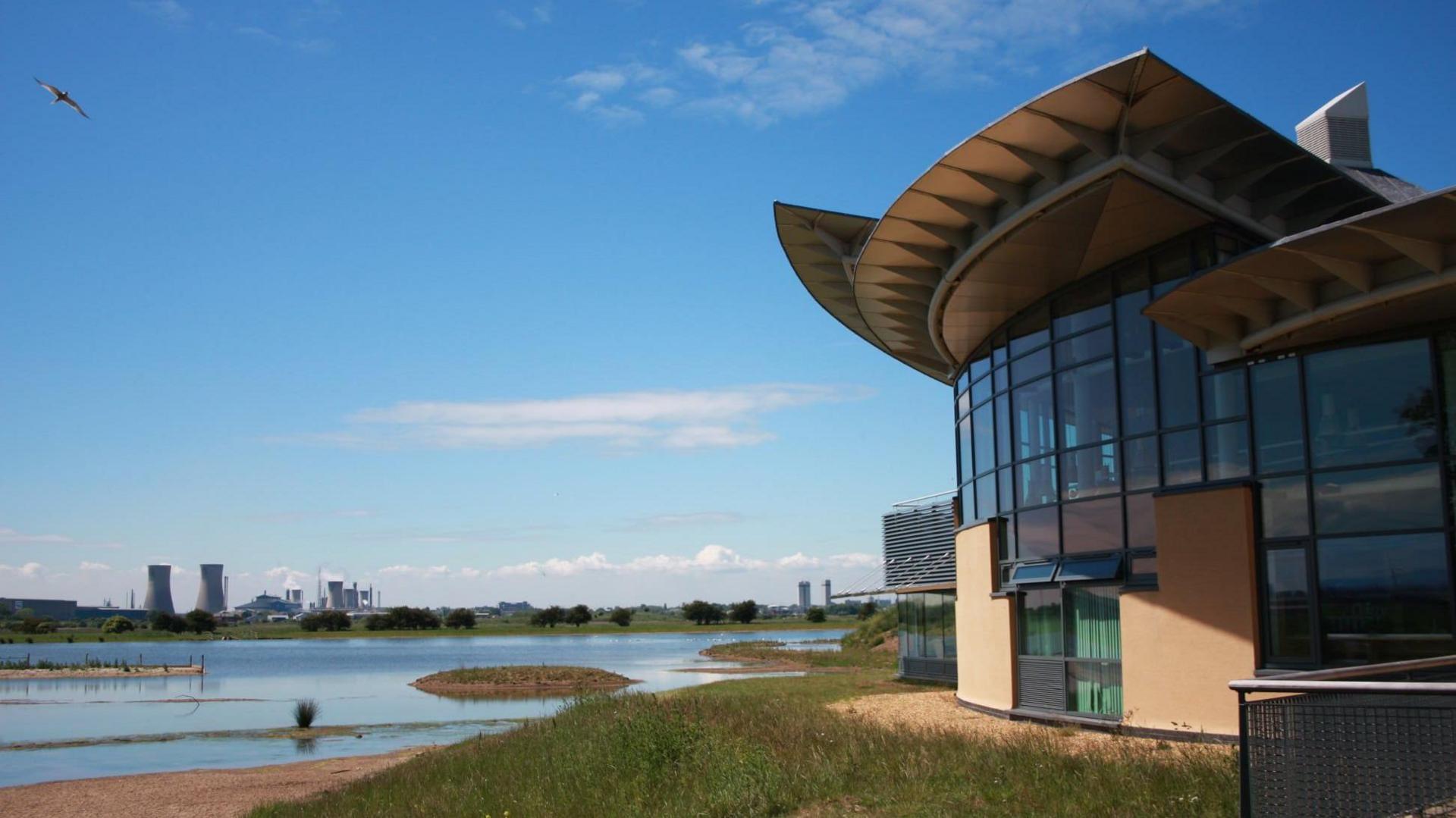
An island has been built at RSPB Saltholme in the hope rare seabirds will build nests on it
- Published
A new island has been built at a nature reserve to support a colony of seabirds devastated by bird flu.
RSPB Saltholme in Stockton, Teesside, hopes common terns, roseate terns and black-headed gulls will use it as nesting space.
The three species have been placed on a conservation watch list by the British Trust for Ornithology (BTO).
Site manager Chris Francis said staff had "missed the chaos and noise" of the colonies after they were hit by avian influenza last year.
"The new islands will help these birds recover their numbers again and, by spreading them out across different breeding sites, reduce the risk of losing birds to avian influenza and other threats in the future," Mr Francis said.
"The sights, sounds, and smells of a seabird colony are one of the nature highlights of the UK and our colonies are some of the most important in the world."
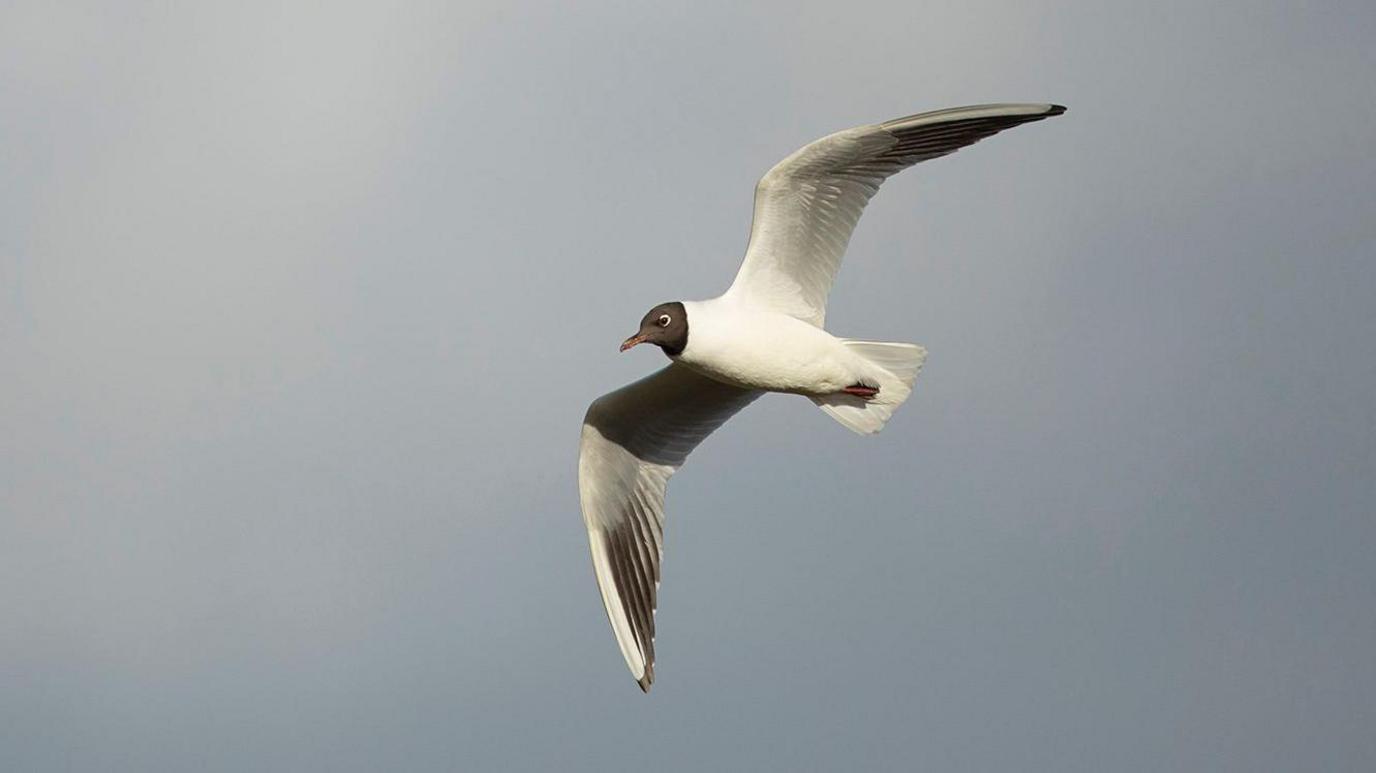
The black headed gull is one of the species which breeds on the islands in Saltholme
Many of Saltholme's breeding birds died in 2023 and a number of those that survived abandoned their nests, the RSPB said.
Only 34 pairs of common tern bred at the reserve in 2023 but numbers have increased, with 79 breeding pairs spotted this year.
Birds which nest in colonies are vulnerable to disease but conservationists hope the new nesting island will reduce the risk of an entire colony being lost.
To improve their habitats, an existing island was also cleared of overgrowth to make it suitable for nesting.
Both islands were then topped with gravel to make them safe for raising chicks.
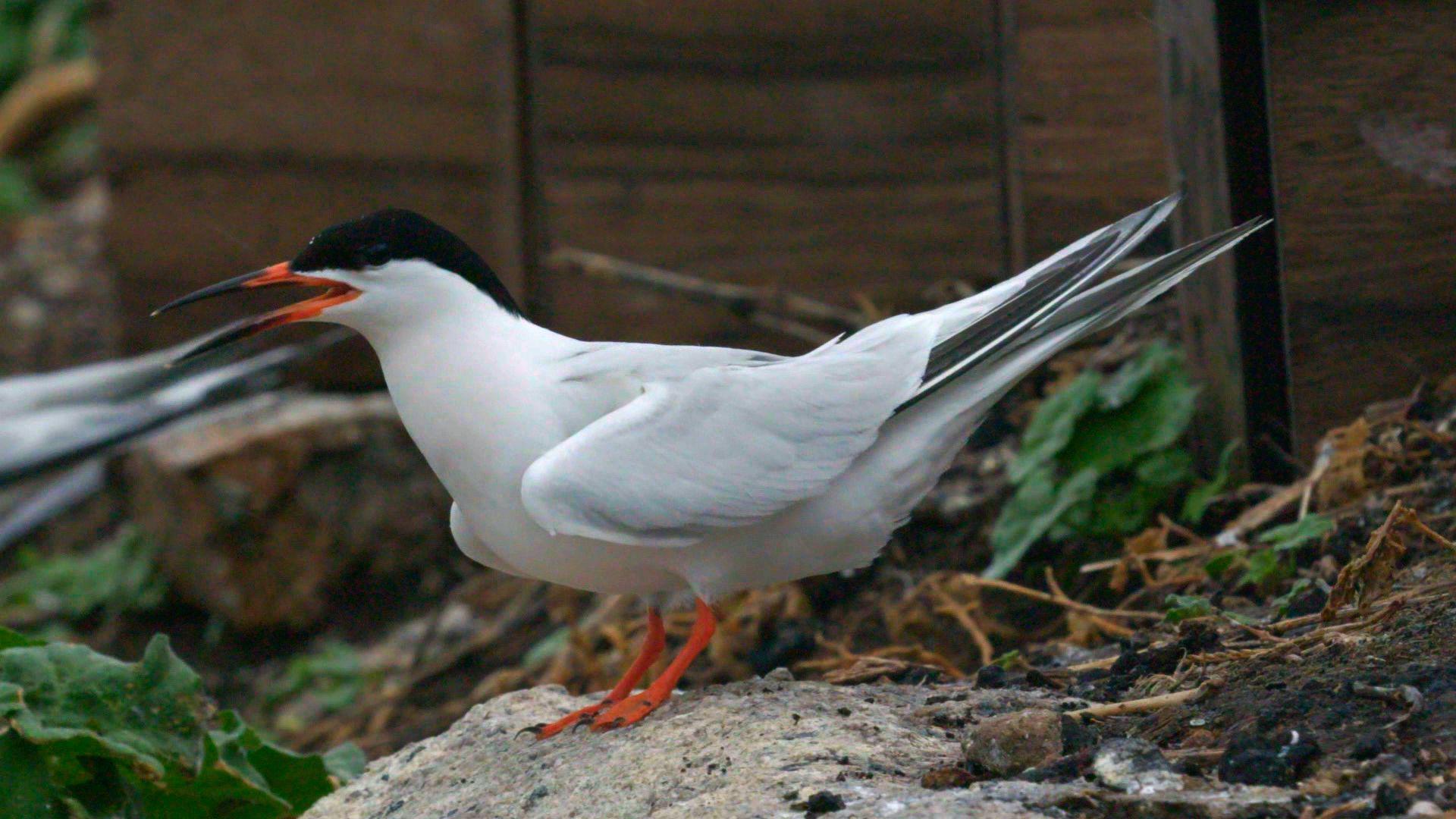
The rare roseate tern can be spotted on Coquet Island in Northumberland
The roseate tern is at particular risk in the UK and is on the BTO's red list of vulnerable birds.
They breed on Coquet Island in Northumberland but every year a few of those birds move to Saltholme.
To attract more, the Teesside reserve plans to install a new sound system playing bird calls.
"It is vital that we do everything that we can to support our seabirds’ recovery," Mr Francis said.
"If our new sound system does the trick, a new roseate tern colony here at Saltholme next year would be the icing on the cake."
Follow BBC Tees on X,, external Facebook, external, Nextdoor and Instagram, external. Send your story ideas to northeastandcumbria@bbc.co.uk.
Related topics
More stories from BBC North East and Cumbria
- Published6 April 2023
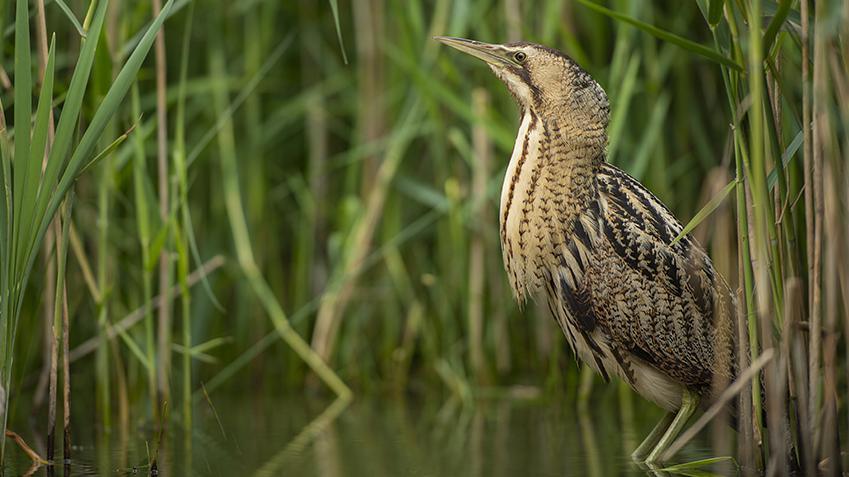
- Published21 July 2024
